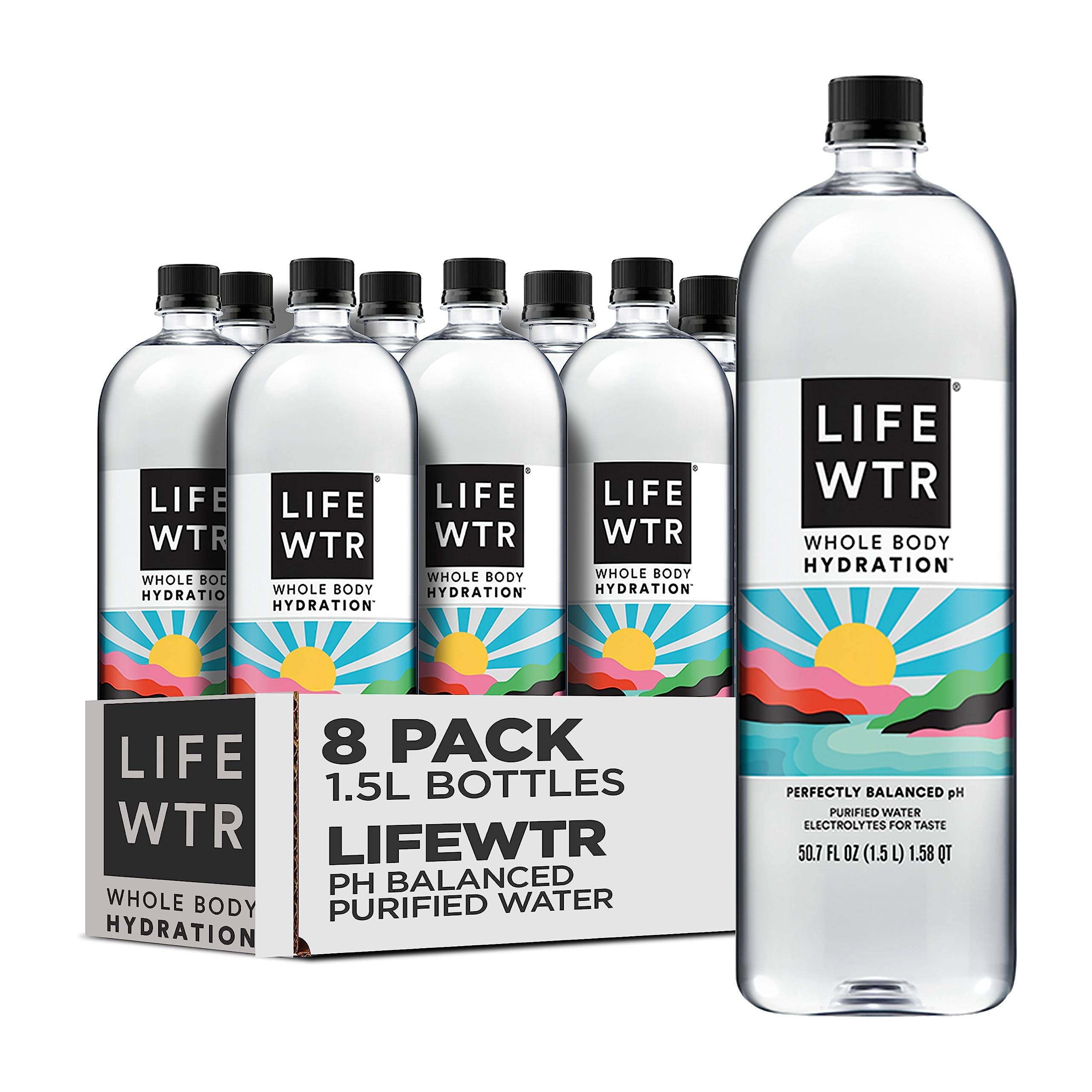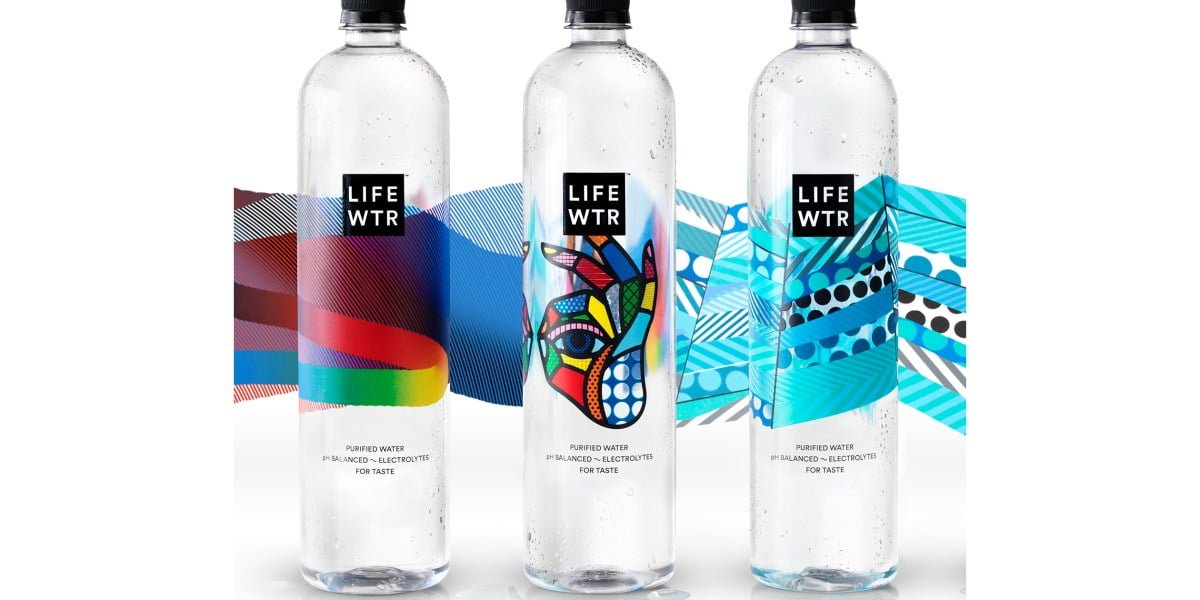Staying hydrated is crucial for maintaining good health, and many people turn to enhanced water products like Life Water to meet their hydration needs.
You might wonder if this popular beverage lives up to its claims of being a healthier alternative to sugary drinks.
In this article, we’ll examine Life Water more closely, exploring its ingredients, nutritional value, and potential benefits so you can decide if it’s the right choice for you.
We’ll also consult expert opinions and scientific studies to overview this trendy hydration option comprehensively.
By the end of this guide, you’ll better understand whether Life Water is a good choice for your health and wellness goals.
Nutritional Facts and Ingredients of Life Water
| Nutrient | Amount | Remarks |
|---|---|---|
| Calories | 0 | It helps in maintaining a healthy weight |
| Fat | 0g | Contributes to heart health |
| Sugar | 0g | Reduces risk of chronic diseases |
| Sodium | Low | Supports healthy blood pressure levels |
Life Water’s carefully chosen components provide a refreshing, health-conscious hydration option.
Let’s take a closer look at each ingredient and the role it plays:
1. Purified Water
The foundation of Life Water is purified water, which has undergone a thorough filtration process to eliminate impurities.
This ensures that your water is safe and of the highest quality.
Purified water is essential for keeping your body hydrated and supporting various bodily functions, such as transporting nutrients and regulating temperature.
2. Natural Flavor
Natural flavors are used to enhance the taste of Life Water without relying on added calories or sugar.
These natural flavors make the water more appealing and encourage you to drink more, ultimately boosting your hydration levels.
Using natural flavors instead of artificial ones, Life Water avoids the potential health drawbacks of synthetic additives.
3. Citric Acid
Citric acid, a natural preservative found in citrus fruits, is added to Life Water to maintain its freshness and stability.
This ingredient also contributes a subtle, refreshing tartness to the water, which can help stimulate salivation and improve your overall hydration experience.
Additionally, citric acid plays a small role in your body’s metabolism.
4. Potassium Citrate
Acting as a buffering agent, potassium citrate helps regulate the acidity of Life Water, enhancing its taste.
Potassium is essential for maintaining proper heart and muscle function and balancing fluids within the body.
By including potassium citrate, Life Water provides an extra boost of electrolytes, further supporting your hydration needs.
Pros and Cons of Consuming Life Water

When considering whether Life Water is a good choice for your health, weighing the potential benefits against any drawbacks is essential.
Let’s explore the pros and cons of this popular beverage:
Pros
- Low Calorie: Life Water’s low-calorie content is a significant advantage for those looking to manage their weight and maintain overall health. By choosing Life Water over sugary drinks, you can save a substantial amount of calories, which add up over time and contribute to a healthier lifestyle.
- Electrolytes and Vitamins: Some varieties of Life Water are infused with electrolytes like sodium, potassium, and magnesium, which play a crucial role in maintaining proper hydration and balance within the body. These electrolytes support various bodily functions, such as muscle contractions and nerve signaling. Additionally, certain Life Water products contain vitamins, such as B and C, which offer a range of health benefits, from boosting energy levels to supporting immune function.
- No Artificial Sweeteners: Life Water does not contain artificial sweeteners like aspartame or sucralose, unlike many other beverage options. Instead, it relies on natural flavors and Stevia leaf extract for a subtly sweet taste. By avoiding artificial sweeteners, Life Water promotes a more natural approach to wellness and helps consumers avoid the potential health risks associated with these synthetic additives.
Cons
- Potential Added Sugars in Some Varieties: While many Life Water varieties are sugar-free, it’s important to note that some may contain added sugars. Consuming too much-added sugar can contribute to weight gain and other health issues. To make informed choices, read the labels carefully and select varieties that align with your health goals and dietary preferences.
- Environmental Concerns: Like most bottled beverages, Life Water is packaged in plastic bottles, which can harm the environment. Plastic pollution is a growing concern, and the production and disposal of these bottles can contribute to waste management challenges. While Life Water has made efforts to use recycled plastic in its packaging, consumers must prioritize recycling and consider alternative, more sustainable hydration solutions, such as reusable water bottles, when possible.
Health Benefits Claimed by Life Water
Let’s dive deeper into the specific health claims made by Life Water and examine the potential benefits associated with each:
1. Hydration and Electrolytes
Staying well-hydrated is essential for maintaining optimal bodily functions. Water plays a vital role in regulating body temperature, transporting nutrients, removing waste, and lubricating joints.
Life Water takes hydration further by including electrolytes like sodium, potassium, and magnesium. These minerals help maintain the balance of fluids in your body, ensuring that you stay hydrated.
Adequate hydration and electrolyte balance can improve physical performance, cognitive function, and overall well-being.
By choosing Life Water, you’re quenching your thirst and supporting your body’s hydration needs on a cellular level.
2. Antioxidants for Immune Support
Some varieties of Life Water, such as the “Immune Support” option, contain antioxidants like Vitamin C and Zinc. These nutrients are crucial for maintaining a strong and healthy immune system.
Antioxidants help protect your cells from damage caused by harmful molecules called free radicals, which can contribute to inflammation and the development of chronic diseases.
By consuming Life Water varieties enriched with these antioxidants, you’re providing your body with an extra line of defense against illness and supporting your overall health.
Regular intake of antioxidants may help reduce the risk of certain chronic diseases and keep your immune system functioning optimally.
3. Zero Calories and No Sugar
One of Life Water’s most appealing aspects is that it contains zero calories and no added sugar. This is a significant benefit for those looking to manage their weight or maintain a healthy diet.
By choosing Life Water over sugary beverages, you can avoid consuming empty calories that can contribute to weight gain and other health issues.
Additionally, reducing your intake of added sugars can help lower your risk of developing conditions like type 2 diabetes and heart disease.
With Life Water, you can enjoy a refreshing and flavorful drink without worrying about the negative impact of excess calories or sugar on your health.
Scientific Studies and Expert Opinions
While Life Water itself has not been extensively studied, several scientific studies have investigated the potential benefits of its key components, such as pH-balanced water and electrolyte-enhanced water.
Let’s take a look at a couple of relevant studies:
1. Study on pH-Balanced Water
A 2017 study published in the Journal of Biology of Sport examined the effects of alkaline (pH-balanced) water on hydration status and acid-base balance in the body.
The researchers divided a group of trained athletes into two groups: one that consumed alkaline water and another that drank plain water.
After a period of high-intensity exercise, the study found that those who consumed alkaline water had improved hydration status and a better ability to buffer against excess acidity in the blood compared to the plain water group.
While these findings suggest potential benefits of pH-balanced water, it’s important to note that the study was conducted on a small sample size and focused specifically on athletes engaging in intense physical activity.
2. Study on Electrolyte-Enhanced Water
In 2017, a study published in the Journal of Science, Movement, and Health investigated electrolyte-enhanced water’s impact on endurance athletes’ hydration and performance.
The researchers compared the effects of drinking electrolyte-enhanced water versus plain water during a prolonged exercise session.
The results showed that athletes who consumed electrolyte-enhanced water had better hydration status and improved performance than those who drank plain water.
The study suggests that the added electrolytes may help replenish those lost through sweat and support optimal hydration during extended periods of physical exertion.
However, it’s worth noting that the study focused on a specific population (endurance athletes) and may not directly apply to the general public’s daily hydration needs.
While these studies provide some insight into the potential benefits of pH-balanced and electrolyte-enhanced water, it’s important to recognize that they have limitations and may not be entirely representative of the effects of Life Water specifically.
More research is needed to fully understand the impact of Life Water’s unique formulation on hydration and overall health.
Who Should Avoid Life Water

While Life Water can be a healthy choice for many people, certain individuals should exercise caution or consult a healthcare professional before incorporating this beverage into their daily routine.
Let’s explore some specific groups who may need to be mindful about consuming Life Water:
1. Individuals with Kidney Problems
Life Water contains added minerals, such as potassium and sodium, which can be problematic for people with kidney issues.
These individuals may have difficulty regulating the levels of these minerals in their bodies, which can lead to potential complications like hyperkalemia (high blood potassium levels) or fluid imbalances.
If you have kidney problems, it’s crucial to consult with your healthcare provider before including electrolyte-enhanced beverages like Life Water in your diet.
They can help you determine if consuming these products is safe and guide appropriate intake levels based on your specific condition.
2. Individuals with High Blood Pressure
While Life Water’s sodium content is relatively low, it may still be a concern for those managing hypertension.
Sodium can contribute to increased blood pressure, so individuals with high blood pressure must be mindful of their sodium intake.
If you have hypertension, you should monitor your sodium consumption closely and consider water options with minimal to no added minerals.
Consulting with your doctor can help you decide whether Life Water fits into your blood pressure management plan.
3. Individuals with Diabetes
Some flavored varieties of Life Water may contain added sugars, which can impact blood sugar levels.
For individuals with diabetes, it is essential to pay close attention to the nutritional labels and choose varieties that do not contain added sugars.
Opting for sugar-free options can help prevent sudden spikes in blood glucose levels and support overall diabetes management.
If you have diabetes, it’s always best to discuss your beverage choices with your healthcare team to ensure they align with your specific dietary needs and treatment plan.
4. Individuals with Certain Allergies
Life Water may contain natural flavors and other additives that could potentially trigger allergic reactions in sensitive individuals.
If you have a history of allergies or sensitivities to certain ingredients, it’s important to review the ingredient list on Life Water labels carefully.
Look for any potential allergens or irritants, and if in doubt, consider sticking to plain water or other beverages that you know are safe for you.
It’s always best to consult your healthcare provider for personalized advice if you have any concerns about potential allergic reactions.
Alternatives to Life Water
| Brand | pH Level | Electrolytes | Added Vitamins |
|---|---|---|---|
| Life Water | 6.4 to 7.4 | Sodium, Potassium, Magnesium | Vitamin C, Zinc in ‘Immune Support’ |
| Aquafina | Approx. 5.5 to 7 | None Specified | None |
| Dasani | Approx. 5.6 to 7 | Magnesium Sulfate, Potassium Chloride | None |
| Essential | 9 or above | Electrolytes added for taste | None |
| Core Hydration | 7.4 (Neutral) | Electrolytes for hydration | None |
| Smartwater | Approx. 7 | Electrolytes added for taste | None |
| Propel | Not specified | Electrolytes for hydration | None |
| Vitaminwater | Not specified | None Specified | Various, depending on flavor |
Conclusion
Life Water offers a refreshing and health-conscious hydration option with its carefully selected ingredients and potential benefits.
By choosing Life Water, you can enjoy a low-calorie, electrolyte-enhanced beverage that may support your overall well-being.
However, it’s essential to consider your health needs and consult a healthcare professional if you have any concerns.
While Life Water has advantages, it’s important to remember that no single product can replace a balanced diet and lifestyle.
Ultimately, the key to staying healthy and hydrated is to make informed choices that align with your personal goals and preferences.
So, the next time you reach for a bottle of water, consider trying Life Water and see how it can contribute to your hydration and wellness journey.




